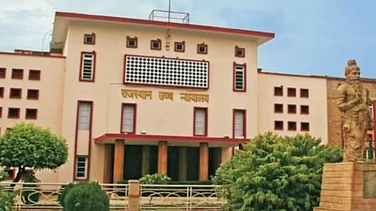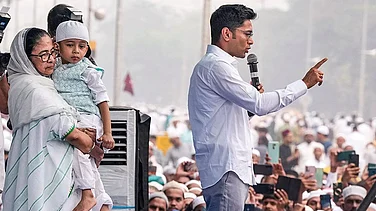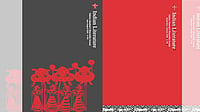I have not known Keki Daruwalla closely as many in the poetry orbit have known him for decades. Growing up in Malabar, the numerous trips by the green city bus to the Calicut Public Library (its current renovated form in the heart of the city by Manachira and SM Street being the greatest contribution by Amitabh Kant, who was the then District Collector of Calicut) and the bumpy rides in those KSRTC buses to Calicut University Library which allowed six books on a card generously bestowed by a cousin who was then a PhD Scholar at Calicut University was nothing short of a windfall for a school girl. Reading Jayanta Mahapatra, Nissim Ezekiel and Keki Daruwalla was akin to reading Gods. Receiving rejection letters signed by Nissim Ezekiel from PEN Magazine thrilled me to the roots with delirium with all the symptoms of cholera as though an unrequited love, while convincing me I had no hope of being loved by the Gods. Not that I still nurse the hope of being loved by the Gods. The discourses published in Civil Lines narrating correspondence between Arvind Krishna Mehrotra and senior poets gave me the surreal thrill of virtual game as though I was witnessing the war of titans.
It was many years till I got to meet Keki Daruwalla way back in 2010-2014. I could barely take off any time from work, yet managed, once in a blue moon, to be at the poetry events hosted at India International Centre, New Delhi. The first time I met him, I had just walked into the room where the discussion had already commenced and there, Keki sat across the table almost looking like a fine Greek God. I was nervous and excited. And he smiled. This instilled enough courage in me to return the smile. At some point of time after the event, we struck a casual conversation. We met again another time when he signed a copy of Fire and Altar for my daughter remarking that it would take a couple of years for her to grapple with the Greeks and Romans. I never sought his number, clicked a selfie nor corresponded with him. It was enough to read poetry and that was all that mattered. Yet I never forgot this gentle countenance. His cheery smile and the peppered conversation demystified my misplaced belief that poets are not Gods who refused to respond to lesser beings. Poets happen to be human beings albeit affected by the world, history past, present and future to a more acute degree. Keki, as I saw him through his verses was gifted with an eye that could see a glorious past of light and palaces as Pasargadae, the capital city of Cyrus the Great whereas the ordinary eyes saw only ruined buildings and dilapidated wall.
As light and shadow interweaves on this beautiful day when he has crossed the bridge, I am reading Fire and Altar once again, slotted in a time reaching two thousand years or before. He says one can only try and imagine what the past was like – slow turn of the Persian wheel, slow tramp of soldiers in keeping with the unhurried pace of time, tilting of empires as they collided with each other, Darius the Great getting a canal dug from the Nile to the Suez and above all peace spreads like water over the desert. In the poem Barbarians which is a riposte to Cavafy, one doesn’t miss Keki’s sense of humour that "while the West waited, we sailed eastwards to Gujarat" and the final flourish that "It is not that the barbarians won’t be coming. The point, Cavafy, is there were never any barbarians".
In the Pasargadae Sonnets one witnesses the white limestone capitals rising from the black plinths like a song and the walls finished in stucco and their paint in lapis lazuli -blue or turquoise green. The poplar grave flamed and each leaf had a bronzed side to its face. One is lost in time mesmerised by the touch of light of water which was unlike the touch of light on stone and the simurgh chicks flying from their roost. When the night came down on the battlefield the weary armies of Cyrus and Croesus tasted their salty wound and watched the fires light up the enemy camp. Moving with his dreaded cavalry, one sees Croesus shout for Apollo who promised him victory. And here Keki with the characteristic humour says "the trouble about Apollo is when you need him most, he isn’t there ( and no one answers his phone)."
The transience of life comes in many references as much as the wealth of intangible possessions where he says "What can death take away? The shade of their trees and birdsong of their woods are all that they have." In the boat to Delphi, Apollo’s home, I walked with Keki, looking for the shaded cafes and tavernas on the waterfront, where they fried the morning catch with almonds and served dolmadez and coal-grilled octopus, a white-shimmer town with a pinch of local colour, fisher huts, sponge divers, an olive oil warehouse, a maze of cobbled labyrinthine streets, houses so white that seafront shimmered with its skein of underwater images. Croesus, the king boiling tortoise with lamb reassured me that I hadn’t strayed in my path and many often I had foolhardily strove to win, only to get a mountain and desert and overlordship of those whose fires singed me and in a tough language I learned that "surfeit never makes wars on penury". Keki convinced us that during an equinox a branch may leaf and flame at the same time and truths change like shadows with the wheeling sun.
As the moon eclipses over the night, Keki will be regaling the wonderous tale Persians and Greeks to the Gods and his poems will serve as tombs he built while still alive for the posterity who shall read his works to live through the dust and darkness to emerge into light and dawn harnessed to the sun, the colour of fire. In the spiral of time, a poet is never exiled even by death.
(Smitha Sehgal is a poet and legal professional. She has authored ' How Women Become Poems in Malabar')

























